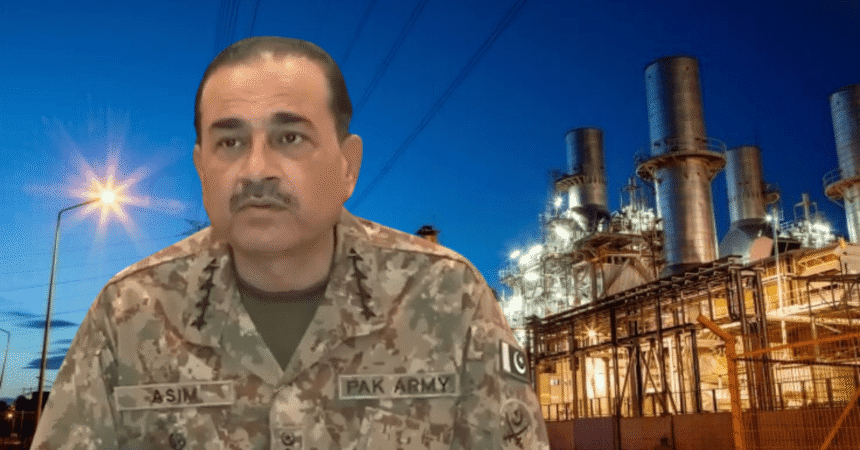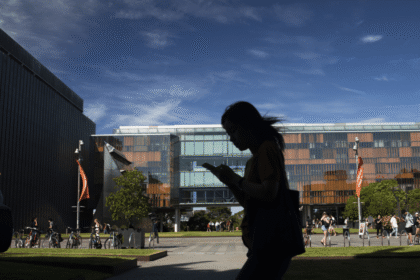In a significant gathering held in Karachi, Chief of Army Staff (COAS) General Asim Munir met with over 100 prominent businessmen to address the country’s economic challenges and explore avenues for growth. The four-and-a-half-hour session focused on fostering collaboration between the military and the business community, aimed at stimulating the local economy and enhancing investor confidence.
Addressing Economic Challenges
The meeting underscored the urgent need to tackle the pressing economic issues facing Pakistan. Business leaders articulated their concerns regarding high operational costs and the impact of rising interest rates on investment. In response, General Munir offered a series of assurances that are likely to change the economic landscape.
He announced a plan to bring interest rates down to single digits by next year, a move that could significantly ease the financial burden on businesses. This announcement was met with optimism from the business community, who believe that lower interest rates will encourage borrowing and investment, ultimately leading to economic growth.
Reducing Operational Costs
Another critical point of discussion was the high cost of electricity, which has been a significant concern for industries across the nation. General Munir revealed that electricity prices would be reduced as early as next month, providing much-needed relief to businesses that have struggled with rising energy costs. This reduction is expected to improve profit margins and allow companies to invest more in expansion and hiring.
Business leaders emphasized the importance of these measures, expressing hope that such initiatives would create a more favorable environment for investment and innovation.
Encouraging Investment Repatriation
A key theme of the meeting was the repatriation of funds held abroad by Pakistani traders and businesspeople. General Munir urged the attendees to bring their investments back to Pakistan to stimulate the local economy. Many Pakistani entrepreneurs have opted to invest overseas due to concerns about political instability and economic uncertainty at home.
To facilitate this process, business leaders proposed the introduction of an “amnesty” scheme that would allow individuals to return their capital without facing punitive measures. This suggestion resonated well with General Munir, who recognized the need for policies that would encourage investment in the country.
The Role of the Private Sector
General Munir stressed the importance of the private sector in driving economic growth. He urged business leaders to prepare for new industrial ventures, emphasizing that innovation and entrepreneurship are essential for building a robust economy. The COAS called for a cooperative approach between the government and private enterprises, advocating for a partnership that would pave the way for sustainable development.
The military’s role in supporting Karachi’s economic growth was also highlighted during the meeting. General Munir stated, “Our hearts beat for Karachi,” reaffirming the military’s commitment to the city’s development. He noted that military-run enterprises contribute approximately Rs 400 billion annually to the national treasury, underscoring the importance of such contributions to the overall economy.
Exploring New Industrial Ventures
One of the prominent voices during the meeting was businessman Arif Habib, who proposed separating the construction and real estate sectors. He argued that such a division would enhance the efficiency and focus of each industry, ultimately leading to more effective policies and practices. The proposal sparked lively discussion, with many attendees agreeing on the potential benefits of specialization in these critical sectors.
General Munir welcomed the idea and encouraged further dialogue on how to implement such structural changes. He emphasized that the economy could greatly benefit from a more organized approach to industrial development, enabling sectors to thrive independently while contributing to the national growth agenda.
Ongoing Dialogues with Political Leadership
In addition to economic strategies, General Munir mentioned ongoing discussions with political leaders regarding the creation of new provinces. He believes that restructuring administrative boundaries could lead to improved governance and the emergence of new leadership, fostering a more effective response to local needs and economic challenges.
This aspect of the conversation reflects a broader understanding that economic issues are often intertwined with political structures. By addressing both economic and governance challenges, General Munir aims to create a comprehensive framework for national development.
Building Confidence Among Investors
The sentiments expressed during the meeting were largely positive, with traders feeling optimistic about the future. Many emphasized that the military’s involvement in economic discussions signals a commitment to stability and growth. This perceived stability is crucial for attracting foreign direct investment, which has been sluggish in recent years due to various factors, including political instability and economic uncertainty.
The military’s influence in Pakistan’s economy has historically been significant, and this meeting marks a renewed effort to harness that influence for positive change. By engaging directly with business leaders, General Munir aims to build confidence among investors, encouraging them to view Pakistan as a viable destination for their capital.
Strengthening the Relationship Between Business and Government
The interaction between General Munir and the business community signifies a pivotal moment in the relationship between the military and the private sector. For years, there has been a perception of disconnect between government policies and business needs. This meeting aimed to bridge that gap, creating a platform for dialogue and collaboration.
By actively seeking input from business leaders, the military demonstrates a willingness to listen and adapt policies that better serve the economic interests of the country. This approach could lead to more informed decision-making, ultimately resulting in policies that foster growth and stability.
The Importance of Infrastructure Development
As discussions continued, the importance of infrastructure development emerged as a critical component of economic revitalization. Business leaders pointed out that inadequate infrastructure has been a significant barrier to growth. General Munir acknowledged these concerns and emphasized the need for improved logistics and transportation networks to facilitate business operations.
Investment in infrastructure not only supports existing businesses but also attracts new investments. A robust infrastructure framework can enhance productivity and efficiency, making Pakistan a more competitive player in the global market.
Future Prospects for the Economy
Looking ahead, the meeting has set the stage for a more proactive approach to economic development in Pakistan. With the military’s backing and a commitment to fostering a conducive business environment, there is potential for significant progress. However, the success of these initiatives will depend on effective implementation and ongoing collaboration between the military, government, and the private sector.
Business leaders remain hopeful that the measures discussed during this meeting will lead to tangible improvements in the economic landscape. As they prepare to bring back investments and explore new ventures, the commitment from General Munir and the military could serve as a catalyst for positive change.
A Collaborative Future
In summary, the meeting between General Asim Munir and Karachi’s business community represents a critical step toward revitalizing Pakistan’s economy. With promises of lower interest rates, reduced electricity costs, and a call for repatriation of investments, there is a renewed sense of optimism. The focus on collaboration between the military and business sector is essential for addressing the multifaceted challenges facing the country.
As these discussions continue, stakeholders from all sectors will need to work together to ensure that the initiatives proposed are realized and lead to sustainable economic growth.
#PakistanEconomy #Investment #Karachi #COAS #BusinessGrowth #ElectricityPrices #InterestRates #EconomicDevelopment #Infrastructure #Collaboration







